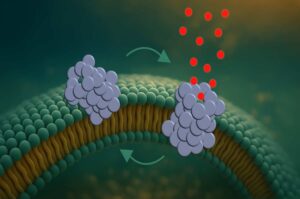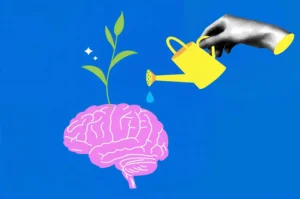We all crave true love—but how do you know it’s the real thing? Psychology offers deep insights into how love works in the mind, how to spot it, and why it’s different from infatuation or obsession.
Table of Contents
ToggleUnderstanding True Love in Psychology
What is True Love? A Scientific Perspective
True love, from a psychological standpoint, isn’t just an emotional high — it’s a complex interplay of biology, behavior, and deep emotional connection. Psychologists define true love as a blend of passion, intimacy, and long-term commitment, as outlined in Sternberg’s Triangular Theory of Love. Unlike infatuation, true love grows over time, sustained by mutual respect, trust, and shared experiences. Research shows that people in enduring relationships activate specific brain regions associated with reward, motivation, and empathy, suggesting that love is both a psychological state and a brain-driven process.
The Role of Attachment Theory in Love
Attachment theory, originally developed by John Bowlby, plays a central role in how we experience love. The type of attachment we form in childhood — secure, anxious, avoidant, or disorganized — often influences our adult romantic relationships. For example, securely attached individuals tend to form healthier, more stable bonds, while those with anxious or avoidant attachment styles may struggle with intimacy or trust. Understanding your attachment style helps decode patterns in relationships, paving the way for more fulfilling and emotionally safe connections.
How Hormones like Oxytocin Influence Love
Oxytocin, often dubbed the “love hormone,” is crucial in bonding and emotional closeness. Released during hugging, touching, sex, and even meaningful eye contact, oxytocin helps build trust and empathy between partners. It strengthens pair bonding and fosters feelings of comfort and safety. Studies also show that higher oxytocin levels correlate with increased relationship satisfaction and reduced stress. However, it’s not acting alone—dopamine and serotonin also contribute, creating a chemical cocktail that powers attraction, attachment, and long-term love.
Psychological Signs of True Love
Emotional Safety and Vulnerability
True love creates a space where both partners feel emotionally safe. You can be your raw, unfiltered self—expressing fears, dreams, or insecurities—without fear of judgment or ridicule. Vulnerability isn’t a weakness in true love; it’s a strength that deepens connection.
Consistent Respect and Support
Respect in true love goes beyond words—it’s visible in daily actions. Whether it’s respecting your partner’s opinions, space, or boundaries, true love never undermines or controls. Genuine support is also consistent, especially during tough times—not just when it’s convenient.
Long-Term Thinking and Shared Goals
True love naturally shifts focus toward the future. Partners think in terms of “we” instead of “me.” Whether it’s planning a career, a family, or lifestyle choices, shared long-term goals reflect a deep emotional investment in the relationship.
Healthy Conflict Resolution
Disagreements are normal, but true love is defined by how conflicts are handled. There’s open communication, active listening, and an effort to understand—rather than win. Love means fixing problems together, not breaking each other down in the process.
Mutual Growth and Self-Development
Partners in true love inspire each other to evolve. Instead of jealousy or competition, there’s encouragement to grow personally, professionally, and emotionally. Both individuals flourish without losing themselves in the relationship.
Acceptance of Flaws
True love sees and accepts imperfections without trying to “fix” the other. Real love doesn’t idolize—it embraces the whole person, flaws included. This acceptance builds a solid foundation of authenticity and comfort in the relationship.
Trust Without Constant Proof
In a truly loving relationship, trust doesn’t need daily validation or surveillance. There’s no space for excessive jealousy or possessiveness. Instead, there’s a deep-rooted belief in each other’s integrity and loyalty, even in absence.
Time-Tested vs Instant Connection
Real love takes time. It grows through shared experiences, hardships, and consistent emotional presence. In contrast, infatuation often feels like an instant spark — intense and exhilarating, but typically short-lived. While love deepens with time, infatuation tends to fade when reality sets in. Ask yourself: is this connection evolving or just erupting?
Depth of Understanding vs Surface Attraction
Love is rooted in knowing someone deeply — their strengths, flaws, dreams, and fears. It thrives on emotional intimacy and trust. Infatuation, on the other hand, often revolves around physical attraction, idealized fantasies, or superficial traits. If your feelings are based mostly on looks or fantasy, it may not be love — yet.
Stability vs Emotional Rollercoaster
A hallmark of true love is emotional stability. It brings calm, support, and consistency. While ups and downs happen, they’re managed with maturity. Infatuation, however, is often dramatic, unpredictable, and obsessive — it can feel like a constant high followed by crashing lows. If your emotions swing wildly, take a closer look.
Can Psychology Help You Build True Love?
Practicing Empathy and Active Listening
Psychology emphasizes that empathy and active listening are essential building blocks of true love. Empathy allows partners to emotionally attune to each other’s feelings, reducing misunderstandings and emotional distance. Active listening, a key communication skill in psychological counseling, involves giving full attention without judgment, paraphrasing for clarity, and validating the other person’s emotions. These practices foster mutual respect, emotional safety, and trust—core elements of lasting love.
Importance of Emotional Intelligence
Emotional Intelligence (EQ) is the psychological capacity to recognize, understand, and manage one’s own emotions while navigating interpersonal dynamics effectively. High EQ in relationships helps individuals communicate without blame, stay calm during conflict, and offer genuine support. According to relationship psychologists, couples with higher emotional intelligence are more resilient and adaptive, making EQ a crucial trait in building and maintaining true love.
Mindful Relationship Habits
Mindfulness, a well-researched concept in psychology, plays a transformative role in romantic relationships. Mindful couples intentionally cultivate presence, appreciation, and non-reactivity. Simple habits—like expressing gratitude, taking deep breaths during tension, and regularly checking in emotionally—can strengthen connection. These small, conscious acts build emotional intimacy and reduce the autopilot patterns that often erode love over time.
Read Also:
How to Deal with Depression After a Breakup: 11 Healing Steps to Rebuild Your Life
Religious OCD (Scrupulosity): How to Recognize, Cope, and Heal Without Losing Faith
FAQ:
Q1. What is true love according to psychology?
True love involves emotional safety, trust, growth, and a deep psychological bond over time.
Q2. Can true love be scientifically proven?
Psychology and neuroscience show consistent brain activity patterns linked to long-term love and attachment.
Q3. What are signs of true love in a relationship?
Respect, vulnerability, trust, emotional support, and mutual growth are key indicators of true love
Q4. How does oxytocin relate to true love?
Oxytocin, the “love hormone”, enhances bonding, trust, and long-term emotional connection between partners.
Q5. Can you develop true love over time?
Yes, love can deepen with emotional intelligence, shared experiences, and consistent positive interaction.










3 thoughts on “True Love Explained by Psychology: What Science Says About Real Relationships”